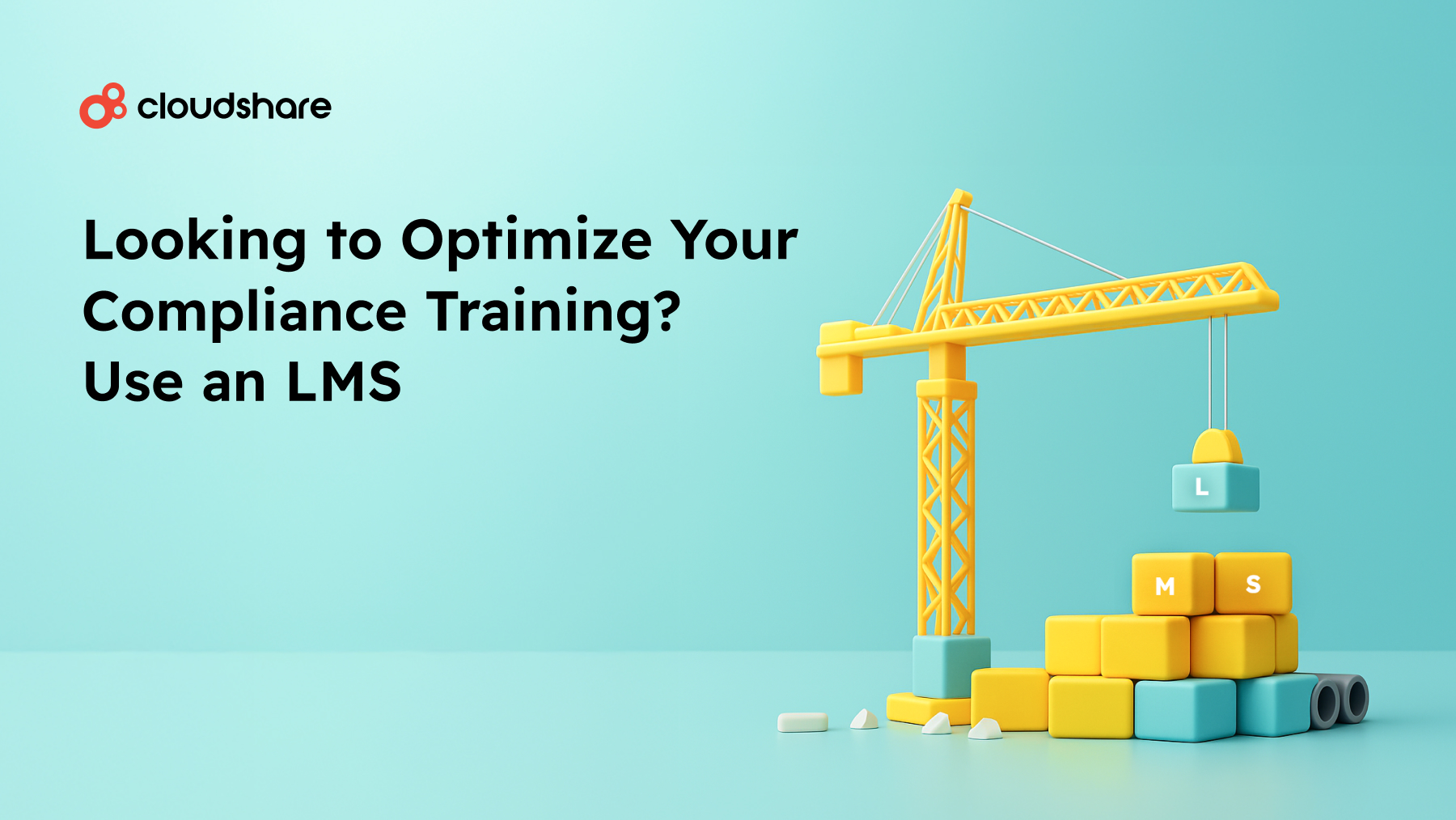
Compliance is a complicated beast, and between emerging technology and an endless stream of new regulations, it won’t get simpler any time soon.
You need to ensure your employees have the knowledge and skills to keep up. Because if one of them makes a compliance blunder, it’s your business that’s going to pay the price.
Compliance training, in other words, is non-negotiable. You have two options:
- Find a course for your employees online
- Manage your training program internally
If you choose the latter, you’ll need a learning management system (LMS). This article explains why before diving into the features you should prioritize.
Why Do You Need an LMS for Compliance Training?
With continually evolving compliance standards and requirements, if you try to develop and deliver your training manually, you’re going to end up shouldering a ton of work.
So how exactly does an LMS help?
- Centralizing and consolidating training materials makes it easier to update them when regulatory changes occur.
- With an LMS, you can track which employees have completed their training. Learner records can also be provided to regulators as proof that an individual was properly trained.
- Digital content is both more efficient to maintain and more cost-effective to deliver.
- Enriching your training with media content and interactivity can potentially improve engagement and retention.
- Digital compliance training can be accessed anytime and from any device.
- Automation means less time spent on administrative tasks like scheduling and assessments..
Key LMS Features for Compliance Training
With the right LMS, your organization can make its compliance training more engaging, accessible, effective, and efficient. On the other hand, the wrong LMS can easily end up hindering your training program. So here’s a list of must-have features to help ensure you choose the former instead of the latter.
Content Authoring
In many cases, your compliance training must be tailored to specific roles within your organization. A good compliance-focused LMS will make that easy, allowing you to deliver courses tailored to your specific regulations, industry, and training needs.
Analytics and Reporting
Look for an LMS with comprehensive analytics and reporting capabilities to help you identify knowledge gaps, demonstrate compliance, and track learner progress. A good solution will track everything from course completions and assessment scores to learner behavior.
Notifications and Reminders
No one enjoys chasing people down to remind them about a looming deadline or scheduled training session. Your LMS should take care of that for you, sending out automatic reminders and notifications about events such as certification renewals and policy updates.
In addition to reducing the workload of your instructors, this functionality also reduces the risk of non-compliance due to missed training.
Scalability
This one’s not directly related to compliance, but more a general must-have for any good LMS: scalability. Your LMS should support both evolving compliance requirements and a growing workforce. This is especially important if you work with a distributed team.
Mobile compatibility is also non-negotiable for a modern LMS.
Certification Management
Manually keeping track of certifications, expiration dates, and recertification deadlines can be a logistical nightmare that’s also prone to human error. A well-designed LMS will take care of certification management for you. It’ll make it easy to keep track of mandatory credentials and send out automated reminders about expirations and renewals.
Learner Experience
Just because a training program is mandatory doesn’t mean it can’t also be engaging. By choosing an LMS with a user-friendly interface and features such as gamification and support for interactive learning, you can build a compliance program that eliminates a great deal of boredom from the learning process.
Scenario-based learning can also provide some much-needed practice for more complex compliance programs.
Compliance by design
This one’s obvious. Plenty of corporate LMS platforms offer modules specifically geared toward compliance training. These go a step beyond basic certification management, with advanced features such as:
- The ability to assign training based on user attributes and regulatory requirements
- Version control and automated policy distribution
- E-signature and policy acknowledgement capabilities
- Advanced, rules-based automated recertification
- Targeted multilingual alerts
Next Steps: Learn More About LMS Tools
A good learning management system will be the backbone of your compliance strategy, allowing you to deliver consistent, streamlined, and engaging training to your people.
Check out Understanding the Different LMS Modules to learn more about how LMS platforms work. Then read Why Cybersecurity Companies Must Provide Hands-On Training to Hospital Clients to explore a real-world use case for LMS-based compliance training.
Finally, check out a few of the Best LMS Platforms for Product Training. Plenty of them offer out-of-the-box features that make them a perfect fit for compliance.




